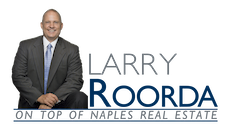Florida Leads Nation in Cash-Only Home Sales
MIAMI – Aug. 29, 2013 – Florida led the nation last month with what one expert called an “astounding” rate of all-cash home sales: 66 percent, a new report shows.
Investor groups, international buyers, landlords and those in the market for vacation homes are fueling a cash-only market that has virtually shut out entry-level homebuyers, who can’t get approved for mortgages.
Lake Mary real-estate agent Tom O’Brien said he recently represented a single mother employed by Valencia College who wanted to buy a house near downtown Sanford.
“The seller said he wanted to hold out for a cash buyer instead of waiting for her FHA mortgage to get approved,” O’Brien said Wednesday. “The first-time buyers are the ones who are really struggling; they’re scraping together every nickel, and they’re competing with the cash buyers.”
The influx of cash continues to grow in one of the country’s most volatile states for real estate: Cash sales made up 57 percent of Florida’s home sales a year ago and 61 percent of all sales in June of this year, compared with the 66 percent reported in July, according to the report released today by the real estate research company RealtyTrac Inc.
“That’s astounding,” RealtyTrac Vice President Daren Blomquist said. Nationwide, only Nevada (64 percent) and Maine (60 percent) came even close to Florida’s tidal wave of cash-only deals.
Among Florida’s metropolitan areas, Brevard County had the highest rate of cash deals: Seven out of every 10 house sales last month went for cash. Next in line was the giant metro area that includes Miami, Fort Lauderdale and West Palm Beach; 69 percent of all sales there were all-cash deals.
One factor tipping the scales in cash buyers’ favor has been the tightening of mortgage requirements following the easy-lending era that preceded the 2007-09 recession.
“The home-loan mortgage market has utterly dried up,” said Mark Soskin, an associate professor of economics in the University of Central Florida’s business college. “The market requires buyers and sellers, [but] if you want to buy a house, you have to have cash.”
Private-equity firms and institutional buyers have been actively picking up Florida’s lower-priced houses, fixing them up, and renting them for some time already, but those buyers are moving on to other states, RealtyTrac’s report shows. During July, institutional buyers drove 22 percent of the home sales in Georgia, 16 percent in Nevada, 15 percent in Arizona and 14 percent in Florida.
According to Blomquist, Florida last month attracted more small-scale investors, as well as buyers interested in buying second homes or paying cash for their retirement housing. He said he has heard from investment groups that they have turned to the Carolinas and other markets that still offer good returns and until now have been below the radar compared with Florida.
Regardless of who has been laying down all the cash in Florida, the trend has helped the market by flushing sales through the system, Winter Park real estate broker Scott Hillman said.
“The good news is that at least they’re buying,” Hillman said. “We’re not waiting on appraisals to come in and make sure it works, because appraisers look at history and don’t look as much at the current conditions, with the depletions in inventory. A lot of these closings needed to be cash.”
Another key shift noted in RealtyTrac’s July report was a strong rebound in the number of short sales – closings with sales prices below the balances still owed on the properties’ mortgages. During the housing-market meltdown and the Great Recession, distress sales had dominated the Orlando-area housing market before receding in the past year or so as prices rallied.
In July, though, short sales accounted for 30 percent of all home sales in the state, 32 percent in the Fort Lauderdale/Miami metro area, and 39 percent in Metro Orlando. That was double to triple the rate of short sales reported a year ago.
Regular foreclosures, meanwhile, have held steady at about 10 percent of all sales throughout Florida, including Orlando and South Florida, during the past year.
With one of the nation’s highest foreclosure rates, South Florida has a large supply of bank-owned properties. Lenders aren’t interested in waiting for traditional buyers to qualify for mortgages, preferring instead to sell to investors paying cash.
“That’s where all the action is,” said Lex Levinrad, founder of the Distressed Real Estate Institute, a Deerfield Beach-based club for investors. “The banks have an urgent need to get these bad loans off their books as soon as possible. They’re willing to sell for 30 percent less to a cash buyer rather than waiting for a buyer with a mortgage.”
Much of the cash buying in South Florida is from foreigners who view condominiums as safe investments. In the past year, large funds have entered the region, buying single-family homes and renting them out for a year or longer. The Blackstone Group of New York and California-based Waypoint Homes are two of the larger funds buying in Broward and Palm Beach counties.
Some industry analysts once feared that a so-called shadow inventory of homes would hurt the housing market. But David Dweck, founder of the Boca Real Estate Investment Club, said there are enough cash buyers here to support any excess supply of properties. “Without a doubt,” he said. “Without a doubt.”
In July, compared with a year earlier, distress-sale prices in the Orlando area were up 16 percent to $110,000 and in South Florida were up 12 percent to $106,450. Conventional-sale prices, meanwhile, rose 16 percent in Metro Orlando and 19 percent in South Florida from a year earlier.
Even with cash-only deals driving up prices throughout the state, Soskin, the UCF economist, predicted that home prices in Florida won’t return to 2007 levels for another 20 years.
Copyright © 2013 The Orlando Sentinel (Orlando, Fla.), Mary Shanklin. Distributed by MCT Information Services.
